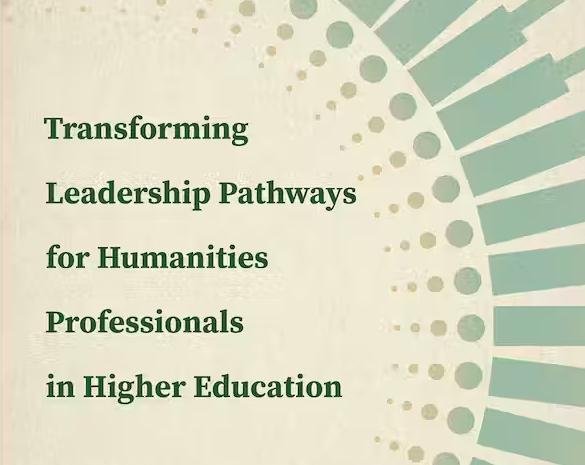Dr. Catherine "Cassie" Thomas, Associate Director of Undergraduate Transition Seminars, co-edited a collection of essays titled, "Transforming Leadership Pathways for Humanities Professionals in Higher Education", which launched on April 15th.

The collection includes thirteen essays from several contributors investigating how humanities professionals grapple with the opportunities and challenges of leadership positions. You can download an open access version of the collection, here.
Thomas and her co-editor began the process of soliciting chapters for the collection three years ago, using their professional networks as a foundation. Many books addressing higher education leadership presuppose the reader is working at a research or four-year institution and is usually authored by individuals from such institutions.
The definition of leadership roles in many texts seems to focus on executive positions and imagine an administrator who has progressed through a career in a traditional manner (tenure track faculty to department chair to the dean and beyond). A strength and unique quality of this collection is its varied representation of higher ed leadership—in terms of the ranks, roles, and backgrounds of the contributors and the array of schools at which they work. This makes the volume particularly appealing to both higher education insiders and students of higher ed interested in learning more about the administrative world of a college or university.
The book also takes issue with the common adversarial 'going to the dark side' narrative around the pursuit and holding of leadership roles in higher education," said Thomas. "Rather, we posit not only that administration is an enriching professional pathway, but also an often opaque and misunderstood one.
Thomas continues to be inspired by both the contributors and their essays, which share the joys, tribulations, and opportunities around taking on leadership roles. She appreciated the opportunity that this project provided to reflect on and provide more context as to why a background in humanities disciplines can be especially helpful when serving as an administrator.
